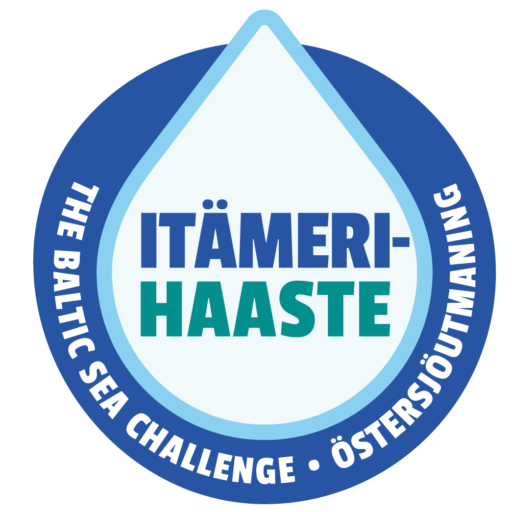Action ideas for companies and associations
The role of business and industry in the work for the Baltic Sea is of paramount importance, as companies have significant impacts on the state of the marine environment directly in their business operations, for example through logistics, raw materials, energy use and their personnel. Protection of the Baltic Sea and preparedness for climate change go hand in hand.
In the Baltic Sea Challenge, your company or association joins a network of environmentally responsible operators. Participation brings visibility among the actors in the network, on the Baltic Sea Challenge website, events, and press releases. Sustainable choices are also economically viable when, for example, logistics and the use of materials become more efficient, or energy and water consumption are reduced!
Examples of concrete measures
Promoting biodiversity
Increase biodiversity in your immediate surroundings. For example, can you influence the plantings on your property or how often the lawn is cut? Make an insect hotel together, participate in invasive alien species campaigns or a nature conservation project. Donate to an organization engaged in restoration or conservation work.
Garbage collection
Organize a garbage collection where you collect rubbish from your local area. Many libraries borrow trash tongs, but the the essentials are a garbage bag and a spirit for outdoor activities. Voluntary work suits well as a number that increases well-being at work.
Baltic Sea friendly catering
Choose eco-labelled products, buy only when you need and prefer locally produced plant-based food. Avoid waste and the use of disposable tableware. Are catering for meetings always necessary? Could you offer more sustainably fished local fish? Use tap water instead of bottled spring water.
Sustainable procurement
Take a critical look at your organization’s procurement. Choose eco-labelled products and reduce consumption where possible. Could you use fewer chemicals? Make sure that chemicals are stored and disposed correctly. Organize training for staff on harmful substances.
Reducing transport emissions
Review your organization’s commuting and hybrid work policies. How often is it necessary to travel abroad? Offer your staff a commuter ticket or bicycle benefit. Minimise the amount of packaging material and make logistics more efficient.
Footprint calculation
Examine the strain of your operations through footprint thinking. Based on the results, choose ways in which you could reduce the load. Personnel can use the calculators to estimate their own carbon footprint, water footprint and Baltic Sea footprint (in finnish).
Raising awareness of the Baltic Sea
Increase your staff’s awareness of the Baltic Sea, its condition, challenges, and solutions. Participate in citizen observations, for example, regarding the blue-green algae situation or invasive alien species. Spend a Well-being at workday by the sea or other body of water. Participate in oil spill response training.
Support for organizations working in water protection
Donate to an organization or project engaged in water protection work. You can also launch your own project. From the Baltic Sea Challenge network, you might also find a project partner.
Investing in energy efficiency
Join the energy efficiency agreement for your sector and carry out an energy audit. Find out about the possibilities of using frequency converters, recovering waste heat, and investigating leaks in compressed air systems. Energy saving guides for different systems can be found on Motiva’s website.
Waste reduction
Develop reusable and recyclable packaging. Prefer reusable hand towels and textiles. Reward staff with intangible assets and services. Investigate the possibilities of using other side streams as raw materials.
